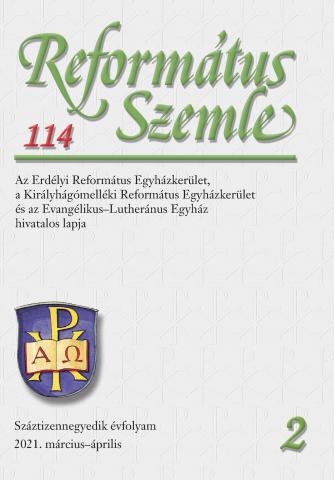A paráznaság és házasságtörés megítélése és büntetése a Debreceni Magisztrátus jegyzőkönyvei alapján (1547–1625). Adalékok Kálvin János teológiai hagyatékának magyarországi hatástörténetéhez
Judging and Punishing Fornication and Adultery in the Protocols of the Magistracy of Debrecen (1547–1625). Addition to the Hungarian Reception of John Calvin’s Theological Heritage
Author(s): Balázs Dávid MagyarSubject(s): Christian Theology and Religion, Family and social welfare, Penology, 16th Century, 17th Century, Social Norms / Social Control
Published by: Erdélyi Református Egyházkerület
Keywords: John Calvin; Juhász Péter Méliusz; Genevan morals; fornication; adultery; Hungarian reformation; Magistracy of Debrecen;
Summary/Abstract: John Calvin was devoted to restore the sanctity of the Genevan townsfolk, by which he understood the practical fulfilment of God’s Law, the Ten Commandments. To be sure, his primary intention was to exert an influence on the texture of daily life of the Genevan population. He delivered sermons and published-edited commentaries in order to establish his new theological ethics, and marital reforms concerning the adequate moral life of a Christian family. He fought against every kind of sexual crime, including fornication and adultery. However, while Calvin accepted in theory that adultery ought to be punished with death penalty, the Genevan reality was very different, because Calvin was preaching from the mercy of God day by day. Calvin’s thoughts on Christian marriage and family life raised several historical, judiciary and social questions. An examination of Juhász Péter Méliusz’s Debrecen-Egervölgyi Confession and Major Articles shows that Calvin’s heritage deeply influenced the Hungarian Reformed teaching on engagement, marriage and divorce. Nonetheless, the readers will find that the reformers of the “Hungarian Reformed Church” did not cite directly the theological and ethical works of Calvin or Luther concerning the questions of fornication and adultery. An examination of the operation of the Magistracy of Debrecen reveals that, in case of adultery, sinners were allowed to receive the clemency of their spouses, extricating them from the legal procedure with this merciful statement: “I take no pleasure in the death of the wicked” (Ezech 33,11). Between 1547 and 1625 only 26 people (female: 17, male: 9) out of a total of 241 persons (female: 136, male: 105) accused of fornication and adultery were actually executed. Nevertheless, death sentence was promulgated in cases of serious fornication mixed with sexual violence or murder of infants.
Journal: Református Szemle
- Issue Year: 114/2021
- Issue No: 2
- Page Range: 179-210
- Page Count: 32
- Language: Hungarian

